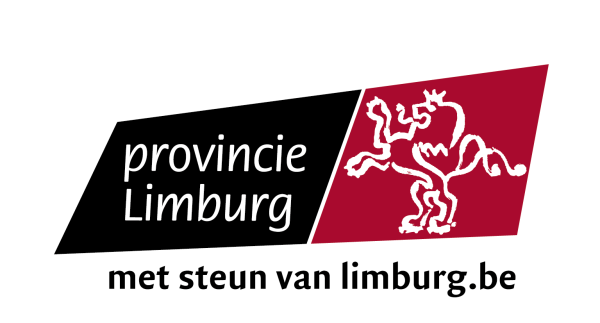€3.4 million in Flemish subsidies for biomedical research complex and high-tech movement and rehabilitation lab at UHasselt
A European first, the high-tech MOVE Lab, which will analyse movement and rehabilitation, will also be housed on the Health Campus. The project is budgeted at €13.6 million. In addition to previous subsidies from the European Regional Development Fund, the Flemish government is now also making €3.4 million available.
Jo Brouns, Flemish Minister of Economy, Innovation, Work, Social Economy and Agriculture: “As a region, Flanders invests more than 3.6% of GDP in research & development, putting us in the top ranks worldwide. But this shouldn’t come as a surprise, R&D is crucial to our knowledge-based economy and the home of food innovation that we are. It is projects like BIOMED VISION and MOVE Lab that more than deserve our support and investment. We can be proud of them.Hasselt University and the partners involved can be proud of them too. The Flemish Government must continue supporting projects like these, both by getting young people excited about research and innovation, and by investing in our colleges, universities and knowledge centres; but also by encouraging our SMEs and companies to innovate.”
Flemish life expectancy continues to rise. While the average life expectancy was 77.8 years in 2000, it was 82.6 years by 2022. That presents various challenges, in particular ensuring that people grow old as healthily as possible. More research within healthcare is therefore needed. As such, UHasselt is working with POM Limburg on Health Campus Limburg DC in Diepenbeek, a site where all healthcare- and life sciences-related innovation will find a home.
“Within the economic action plan SALKturbo, we have set out the ambition to make Limburg a leading healthcare lab. Health Campus Limburg DC forms the crux of this plan. As a provincial government, we are therefore making significant investments in the Diepenbeek campus. The additional support from Europe and Flanders is a recognition of the bold and high-quality ambitions of both province and university. Our aim is to create impact that is felt beyond the provincial borders. Development of the impressive gatehouse, which will act as an open innovation centre for healthcare, is now gaining momentum. For example, the construction team will submit a permit application as early as this autumn, and the foundation stone for the gatehouse is scheduled to be laid in 2024. This autumn will see the opening of building 3 of BioVille – a project of LRM, UHasselt and POM Limburg. But the Health Business District on the campus is also in a study phase, by the province and POM. There are various initiatives that will ultimately form a cohesive whole and create a veritable care and health ecosystem,” enthuses Tom Vandeput, Limburg’s deputy for economy and chairman of POM Limburg. The Health Campus is now taking further shape thanks to the approval of European and Flemish funds for two new projects within UHasselt.
Biomedical research complex: BIOMED VISION
The existing research institute BIOMED on the Diepenbeek campus will be extended with a completely new biomedical research complex by 2026. The at least 3,100 m²-building will house specialised technological platforms in both biotechnology and medical research. The biotechnology platforms will focus on biomedical imaging, cellular analysis and data science. The medical platforms will focus on preventive medicine and digital health. They will bolster the expertise of the Biomedical Research Institute (BIOMED), the Limburg Clinical Research Center (LCRC, in collaboration with Jessa and ZOL hospitals) and the University MS Centre (UMSC, in collaboration with Noorderhart Hospital) of Hasselt University. “These platforms will strengthen (bio)medical research at UHasselt, but also give a boost to many – often young – companies on the Health Campus that can draw on all these new technologies,” explains Prof. Dr. Veerle Somers, dean of the Faculty of Medicine and Life Sciences at UHasselt.
The works for the new research building will begin in October 2024. The project is scheduled to be completed by spring 2026. The project, with a total cost of €12 million, half of which is financed by UHasselt, can count on both €3 million of European support through the ERDF, and also €3 million of Flemish support from the Fonds voor Innoveren en Ondernemen (Fund for Innovation and Enterprise – FIO).
High-tech movement lab: MOVE Lab
The new buildings of the Faculty of Rehabilitation Sciences at UHasselt will house the high-tech MOVE Lab. This lab, which will significantly expand the existing GRAIL movement lab at UHasselt, will see research conducted on a high-tech stepping and balancing platform completely surrounded by a dome, where the subjects will be completely immersed in a virtual reality environment. Researchers will get the subjects to perform various movements, which they can then record in detail with high-resolution cameras, analysing them at the same time.
“With the MOVE Lab, which does not currently exist anywhere else in continental Europe, we can test and develop new rehabilitation technologies, also in cooperation with international companies,” explains Prof. Dr. Pieter Meyns, coordinator of the MOVE lab. “Not only will the lab bolster movement and rehabilitation research at UHasselt, it will also put our university on the map internationally. It will attract new rehabilitation-oriented companies to the Health Campus that can draw on the lab’s unique combination of technologies to develop new (co)creations in, for example, (rehabilitative) care, the pharmaceutical industry, (elite-level) sports, the gaming and entertainment industry, and the manufacturing industry.”
The MOVE lab will be launched in June 2024, and will cost €1.6 million. This project has also been awarded €400,000 in European support through the ERDF, and €400,000 in Flemish support through the FIO.
At UHasselt, we are very grateful that we can realise these projects and thereby help shape the future Health Campus,” enthuses Bernard Vanheusden, rector of UHasselt. “Knowledge institutions, industry, healthcare actors and government will work together here to create an environment that stimulates, fuels innovation in healthcare and life sciences, while attracting and training talent.”

